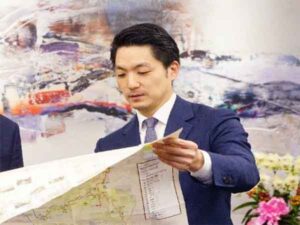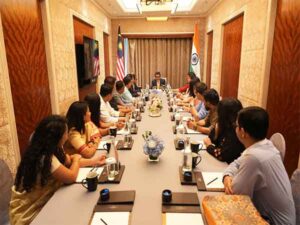China’s long arm: Rights lawyer tries to flee to US, held in Laos; faces risk of deportation
Beijing [China], August 28 (ANI): A Chinese human rights lawyer, who was trying to flee to the US, was arrested while boarding a train to Thailand from Laos on the accusation of using fraudulent travel documents, The New York Times (NYT) reported.
Lu Siwei, who belonged to a rare and increasingly besieged group that took sensitive cases to defend rights activists and political pariahs, is now facing the threat of deportation in Laotian custody.
In a statement urging Laos not to deport Lu, United Nations experts said, “It is outrageous that human rights defenders working peacefully to promote, defend or protect the rights of others are being persecuted even while fleeing,” according to NYT.
Experts have termed Beijing’s campaign as “China’s long arm” or “transnational repression.”
Li Fangping, a prominent Chinese human rights lawyer who moved to the United States, said that this campaign, combined with authoritarian tactics at home, has severely restricted space for defending rights in China.
With pressure mounting on their families, more and more lawyers are trying to leave China, he said. But the authorities have also imposed travel restrictions on them.
“They make conditions impossible for you, but they also don’t let you leave,” he said.
The wife and young daughter of Lu, the lawyer held from Laos, fled first, moving to the United States. Nearly two years later, it was Lu’s turn. He left China last month, crossing over into Laos. A few days later, as he was getting ready to board a train to Thailand, he was arrested by local authorities, as reported by NYT.
Chinese authorities have aggressively widened its net outside of the nation under Xi Jinping, the country’s most iron-fisted leader in decades. They have established police outposts abroad, offered bounties for critics who have fled overseas, coerced members of the Chinese diaspora into working as informants, and secured the detention or deportation of foreign exiles.
Eva Pils, a law professor at King’s College London, who studies human rights in China, said that China earlier was not too concerned with dissidents overseas, as it was confident that they would sink into relative oblivion, reported NYT.
That approach was altered, Pils claimed, as several exiles became prominent opponents of Beijing’s record on human rights, with many of them testifying frequently before a US congressional committee.
“What is really threatening is that China has increased its reach into neighbouring states, and also well beyond that. Nowhere is safe,” Pils said, adding, “That poses many threats to the individuals concerned, it undermines the ability of other governments to keep people within their jurisdiction safe.”
The governments of Cambodia, Thailand, Vietnam, and Laos have jailed or extradited Chinese dissidents, probably at Beijing’s request, given China’s position as a significant commercial partner that makes significant investments in the infrastructure of Southeast Asian nations.
In 2009, 20 Uyghur asylum seekers to China were deported by Cambodia. China opponents like Dong Guangping and Gui Minhai vanished from Vietnam and Thailand in more recent times, only to reappear in Chinese prisons, according to NYT.
Lu, whose clientele included anti-Beijing demonstrators from Hong Kong, initially appeared to have fled the dragnet. He was last saw in the open attempting to board a Laos to Thailand train. In his last call to his wife, he said that he had been detained by three officers and was in danger of being deported.
Requests for comment from the Laotian government were not answered. However, early this month, its embassy in London informed 29 Principles, a British advocacy organisation, that Lu had been detained on suspicion of using doctored papers and was presently awaiting an investigation and legal action.
Lu, 50, has previously been denied permission to leave China, The New York Times reported.






